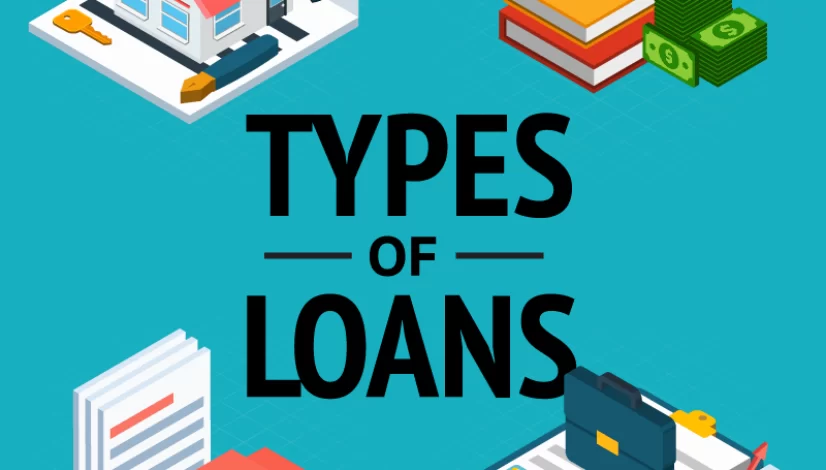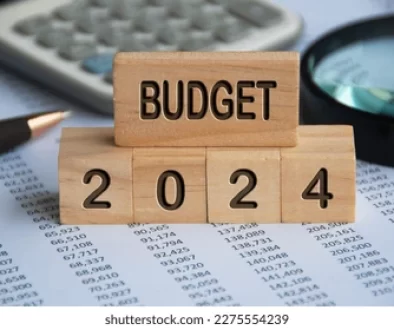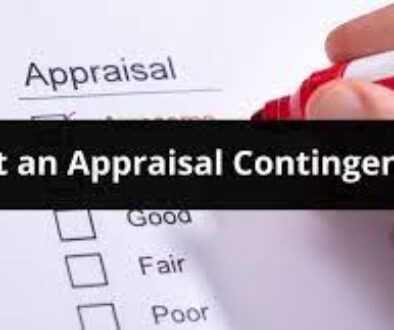Types Of Mortgages
Types of Mortgages
5 Types Of Home Loans For All Home Buyers
Types of Mortgages:
There are a number of loans to choose from when you buy a home, and we will cover five of them below. Use our table of contents to skip ahead to a certain mortgage type.
- Conventional Loans
- Fixed Rate Loans
- Adjustable Rate Loans
- Government Loans – (a) FHA Loans (b) USDA Loans(c) VA Loans
- Jumbo Loans
Understanding The 5 Different Types Of Mortgage Loans
A variety of mortgage options exist, including conventional, fixed-rate and adjustable-rate mortgages, as well as government-backed and jumbo loans. The loan that will best suit your needs will depend on the type of mortgage applicant you are, whether you’re a first time home buyer or you’re looking to downsize or refinance.
1. Conventional Mortgages
Conventional mortgages are the most common type of mortgage. That said, conventional loans may have different requirements for a borrower’s minimum credit score and debt-to-income(DTI) ratio than other loan options. Generally, you can qualify for a conventional mortgage with a minimum credit score of 620 and a DTI of up to 50%.
With a conventional mortgage, you can buy a home with as little as 3% down if you’re a first-time home buyer or 5% down if you already own a home. You’ll also need a minimum credit score of at least 620 to qualify. You can skip buying private mortgage insurance if you have a down payment of at least 20%.
However, a down payment of less than 20% means you’ll need to pay for PMI. Mortgage insurance rates are usually lower for conventional loans than other types of loans (like FHA loans).
Conventional loans are a good choice for most borrowers who want to take advantage of lower interest rates with a larger down payment.
Pros Of Conventional Mortgages:
- The overall borrowing cost after fees and interest tends to be lower than other loan types.
- Your down payment can be as little as 3% – 5% for qualifying loans.
Cons Of Conventional Mortgages:
- You have to pay PMI if the down payment is less than 20%.
- You’ll have to meet qualifications that may require a higher minimum credit score of 620 and lower DTI.
Home Buyers Who Might Benefit:
- Borrowers who can pay at least 3% – 5% down and have a minimum FICO Score of 620 can typically benefit from conventional loans.
- Borrowers with a DTI of 50% or less can typically benefit from conventional loans.
2. Fixed-Rate Mortgages
A fixed-rate mortgage has the same interest rate and principal/interest payment throughout the duration of the loan. The amount you pay per month may fluctuate due to changes in property tax and insurance rates, but for the most part, fixed-rate mortgages offer you a very predictable monthly payment.
A fixed-rate mortgage might be a better choice for you if you’re currently living in your “forever home.” A fixed interest rate gives you a better idea of how much you’ll pay each month for your mortgage payment, which can help you budget and plan for the long term.
You may want to avoid fixed-rate mortgages if interest rates in your area are high. Once you lock in, you’re stuck with your interest rate for the duration of your mortgage unless you refinance. If rates are high and you lock in, you could overpay thousands of dollars in interest. Speak to a local real estate agent or Home Loan Expert to learn more about how market interest rates are trending.
Pros Of Fixed-Rate Mortgages:
- Monthly principal and interest payments don’t change over the life of your loan, making it easier to plan a budget.
- Your loan can be fully amortised over the term of the mortgage.
Cons Of Fixed-Rate Mortgages:
- You’ll pay a higher rate than the introductory rate you could get on an adjustable-rate mortgage.
- You may end up paying more in interest over time if the rates are high.
Home Buyers Who Might Benefit:
- Fixed-rate loans are great for buyers who don’t want to have to worry about their monthly principal and interest payments changing down the road.
- Buyers who are purchasing or refinancing their forever home and don’t plan on moving anytime soon can benefit from these loans.
3. Adjustable-Rate Mortgages
The opposite of a fixed-rate mortgage is an Adjustable rate mortgage. ARMs are 30-year loans with interest rates that change depending on how market rates move.
You first agree to an introductory period of fixed interest when you sign onto an ARM. Your introductory period is typically 5, 7 or 10 years. If you sign on for a 5/1 ARM loan for example, you’ll have a fixed interest rate for the first 5 years. During this introductory period, you pay a fixed interest rate that’s usually lower than 30-year fixed rates.
After your introductory period ends, your interest rate changes depending on market interest rates. Your lender will look at a predetermined index to calculate how rates are changing. Your rate will go up if the index’s market rates go up. If they go down, your rate goes down.
ARMs include rate caps that dictate how much your interest rate can change in a given period and over the lifetime of your loan. Rate caps protect you from rapidly rising interest rates. For instance, interest rates might keep rising year after year, but when your loan hits its rate cap, your rate won’t continue to climb. These rate caps also go in the opposite direction and limit the amount that your interest rate can go down as well.
Adjustable-rate loans can be a good choice if you plan to buy a starter home before moving to your forever home. You can easily take advantage and save money if you don’t plan to live in your home throughout the loan’s full term.
These can also be especially beneficial if you plan on paying extra toward your loan early on. ARMs can give you some extra cash to put toward your principal. Paying extra on your loan early can save you thousands of dollars later on.
Pros Of Adjustable-Rate Mortgages:
- They offer lower interest rates for the initial introductory period.
- The initial low monthly payments allow for a more flexible budget and the opportunity to build up savings.
Cons Of Adjustable-Rate Mortgages:
- If the rate increases, it can dramatically increase your monthly payments once your introductory period is over.
- It’s more difficult to predict your financial standing if interest rates and mortgage payments fluctuate.
Home Buyers Who Might Benefit:
- Those who want a lower introductory rate while purchasing a starter home might benefit from an ARM.
- Those who don’t expect to live in their home for the full term of the loan could benefit from an ARM.
4. Government-Backed Loans
Government backed loans are insured by government agencies, such as the Federal Housing Administration (FHA), Veterans Affairs (VA) or the United States Department of Agriculture (USDA). When lenders talk about government-backed loans, they’re referring to three types of loans: FHA, VA and USDA loans. Government-backed loans may offer more options for qualification.
Each government-backed loan has specific criteria you need to meet in order to qualify along with unique benefits, but you may be able to save on interest or down payment requirements, depending on your eligibility.
FHA Loans
FHA loans are insured by the Federal Housing Administration. An FHA loan can allow you to buy a home with a credit score as low as 580 and a down payment of 3.5%. With an FHA loan, you may be able to buy a home with a credit score as low as 500, if you pay at least 10% down. Rocket Mortgage® requires a minimum credit score of 580.
USDA Loans
USDA loans are insured by the United States Department of Agriculture. USDA loans have lower mortgage insurance requirements than FHA loans and can allow you to buy a home with no money down. You must meet income requirements and buy a home in an eligible suburban or rural area in order to qualify for a USDA loan.
VA Loans
VA loans are insured by the Department of Veterans Affairs. A VA loan can allow you to buy a home with $0 down and lower interest rates than most other types of loans. You must meet service requirements in the Armed Forces or National Guard to qualify for a VA loan.
Pros Of Government-Backed Loans:
- It’s possible to save on interest and down payments, which could mean reduced closing costs
- These loans may offer wider qualification opportunities for borrowers.
Cons Of Government-Backed Loans:
- You must meet specific criteria to qualify.
- Many types of government-backed loans have insurance premiums (also called funding fees) that are required upfront, which can result in higher borrowing costs.
Home Buyers Who Might Benefit:
- Those who have low cash savings might benefit from a government-backed loan.
- Those with lower credit could benefit from a government-backed loan.
5. Jumbo Loans
A jumbo loan is one that’s worth more than conforming loan standards in your area. You usually need a jumbo loan if you want to buy a high-value property. For example, you can get up to $2 million in a jumbo loan if you choose the lending mamba. The conforming loan limit in most parts of the country is $726,200.
Jumbo loan interest rates are usually similar to conforming interest rates, but they’re more difficult to qualify for than other types of loans. You’ll need to have a higher credit score and a lower DTI to qualify for a jumbo loan.
Pros Of Jumbo Loans:
- Their interest rates are similar to conforming loan interest rates.
- You can borrow more for a more expensive home.
Cons Of Jumbo Loans:
- Qualification for a jumbo loan typically requires a credit score of 700 or higher, more money for a down payment and/or cash reserves and a lower DTI ratio than other loan options.
- You’ll need a large down payment, typically between 10% – 20%.
Home Buyers Who Might Benefit:
- Those who need a loan larger than $726,200 for a high-end home, have a good credit score and low DTI.
The Differences Between Conforming And Nonconforming Loans
All types of mortgages are considered either conforming or nonconforming loans. Conforming versus nonconforming loans are determined by whether your lender keeps the loan and collects payments and interest on it or sells it to one of two real estate investment companies –Fannie Mae and Freddie Mac.
Conforming Loans
A conforming loan refers to a conventional mortgage that can be purchased by Fannie Mae or Freddie Mac. For one of these institutions to purchase the mortgage from your lender, the loan must meet basic qualifications set by the Federal Housing Finance Agency (FHFA). These loan requirements include the following:
- Below the maximum dollar limit: The maximum dollar limit in most parts of the contiguous United States is $726,200 in 2023. In Alaska, Hawaii and certain high-cost areas, the limit is $1,089,300. Higher limits also apply if you buy a multifamily unit. Your lender can’t sell your loan to Fannie or Freddie and you can’t get a conforming mortgage if your loan is more than the maximum amount, unless you qualify for a super conforming loan.
- Not a federally backed loan: The loan can’t already have backing from a federal government entity. Some government bodies (including the Department of Veterans Affairs and the Federal Housing Administration) offer insurance on home loans. If you have a government-backed loan, Fannie and Freddie may not buy your mortgage.
- Meets lender-specific criteria: Your loan must meet the lender’s specific criteria to qualify for a conforming mortgage. For example, you must have a credit score of at least 620 to qualify for a conforming loan. You may also need to take property guidelines and income limits into account when you apply for a conforming loan. A Home Loan Expert can help determine if you qualify based on your unique financial situation.
Conforming loans have well-defined guidelines and there’s less variation in who qualifies for a loan. This means that you may be able to get a lower interest rate when you choose a conforming loan.
Nonconforming Loans
If your loan doesn’t meet conforming standards, it’s considered a non conforming loan. Nonconforming loans may have wider qualification criteria than conforming loans. These loans can allow you to borrow with a lower credit score, take out a larger loan or get a loan with no money down.
You may even be able to get a nonconforming loan if you have a negative item on your credit report, like a bankruptcy. Most nonconforming loans will be government-backed loans or jumbo mortgages.
What To Consider Before Choosing A Mortgage
To find the best mortgage for your prospective home, understand the types of loans you’re able to pursue. The factors below can influence the types of mortgages you’ll qualify for:
- Estimated down payment: The size of your down payment impacts the mortgage rate lenders will give and the program you qualify for.
- Monthly mortgage payment: Mortgage lenders will look at your income and assets to determine the total loan amount you can afford to pay back. When calculating your budget for your monthly mortgage payment, consider the principal amount, interest and taxes, mortgage insurance, utilities and any homeowner’s fees.
- Credit score: Your credit score will play a large role in determining the interest rate on your loan and the program you qualify for.
The Bottom Line: Find The Best Mortgage For You
The best type of mortgage loan depends on your individual preferences and situation. Prior to choosing your home loan, calculate your estimated purchase and refinancing costs to figure out how much you’ll need to borrow from your mortgage lender.
Prospective home buyers have a lot to consider when choosing from the different types of mortgage loans available. Your credit score, income, debt and property location all influence the home buying process and type of mortgages you can get.
Want to change your mortgage, consolidate debt or just need cash?
Apply for a refinance with The lending mamba today.




